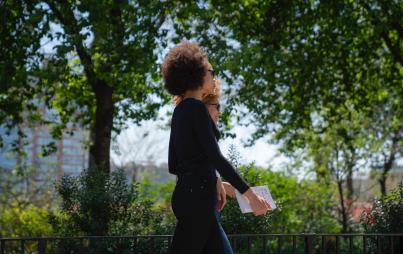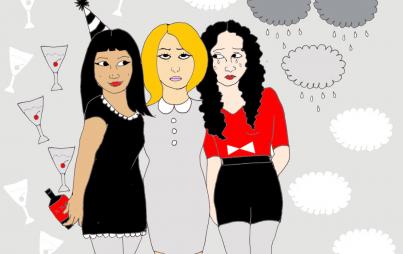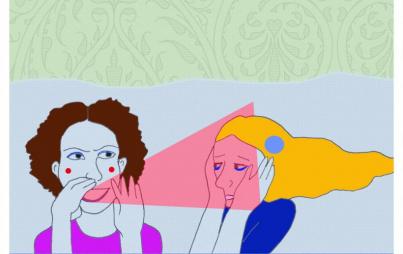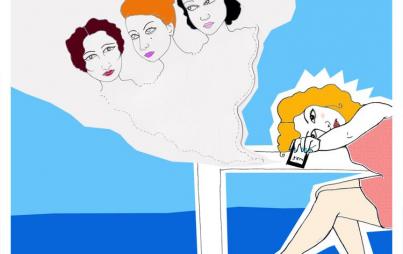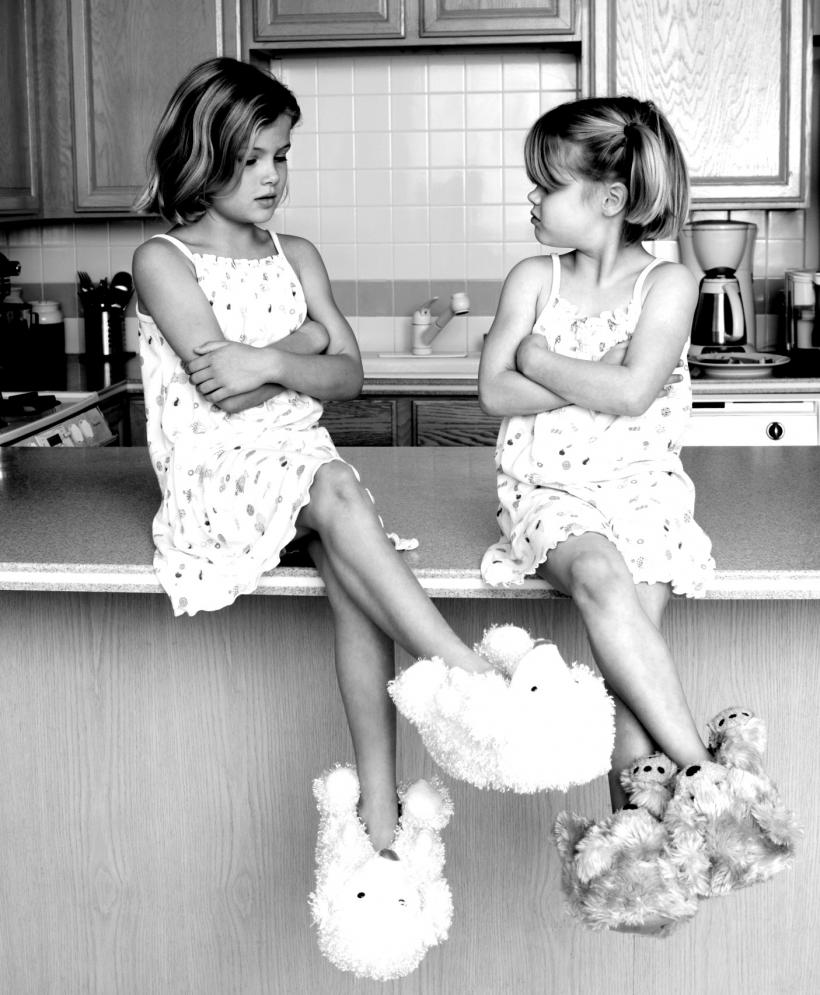
In my early twenties, I gravitated towards people that made me feel inferior.
Last week was Friends Forever Week over at NY Magazine's The Cut. One story in particular, The Friend I've Been Fighting With For 20 Years, by Heather Havrilesky, really struck a chord. It traced the sometimes-loving, sometimes-acrimonious, but always tumultuous friendship between two women.
In short? It reminded me of one of the best friends I've ever had, and hardest friendships I've had to let go of.
Marie was my first-ever writing instructor. She was a chain smoker; I was a health nut. I wrote about sex work. Marie wrote about her seven years of abstinence following her mother's death. On the outside, we couldn't have been more different, but on a deeply intuitive level, our friendship made sense.
When I first met Marie, I didn't have many friends. More often, I was constantly comparing myself to other women—trying, and failing, to measure up. In my early twenties, I gravitated towards people that made me feel inferior. I preferred people who, like me, had been through a lot. Me and my friends had "issues" and I forgave them, as I hoped to be forgiven. My friendship with Marie was a lot like the one described in the story—dramatic and emotionally intense.
For years, we traded long emails and had dinner together at least once a week, taking turns paying when one of us was broke. She was the type of friend who'd never forget my birthday—the kind of person who'd give you things from around her house if she didn't have money to buy a present.
She was loving and loyal, but Marie could also be insecure—and when she felt hurt, she could be hurtful.
Looking back, I recognize how our friendship was compromised by alternating feelings of keen need and fear. Both Marie and I questioned relationships constantly, mistrusting and withdrawing from people as desperately as we sought them out.
As I've gotten older, I've gotten less desperate. I've gotten more discerning. I've become a better friend. This is all the result of looking more closely at my childhood, and learning how growing up in an unsafe environment can have a lasting effect. It's not unusual for people with crap-tastic childhoods like mine to find themselves inexplicably attracted to people that make them feel unsafe. In recovery I learned that by choosing the wrong people to let close, I was unconsciously recreating the chaotic environment I'd grown up in.
Two major things happened in my late twenties that helped change my view on friendship. First, I became best friends with a girl named Natalia. I wrote about that friendship here. Although not perfect, ours was nothing like my friendships before her. I also let go of an abusive romantic relationship. It had been a six year, on-again-off-again dependency, and it took a lot of therapeutic work to leave. After I did, I began to notice the abusive patterns in many of my female friendships as well.
These days, I'm a lot less insecure. Still, I avoid people who trigger my insecurities—for their sake as much as my own. When I notice myself feeling jealous, for example, I take a major step back. Friendship, I learned from Natalia, is not a competition. You don't use a friend to feel better about yourself. Instead, your job is to love one another. In the simplest terms, that means you want to see the other person do well.
It's a bad sign when you and a friend can't share one another's successes. This is exactly what started happening with Marie. The more good fortune I had in my writing, the more I found myself walking on eggshells, careful not to upset her. When Marie got upset, she could get mean. She'd make subtle comments to undercut my confidence. She needed to remind herself by reminding me I wasn't perfect either. While I knew exactly what she was doing, I couldn't help but take it on.
Good things were happening in my life, while hers remained the same. That fall, I found myself in a healthy, stable romantic relationship— one of the first since that bad break-up. Even so, in conversations with Marie, I'd hear myself purposely pointing out the relationship's faults, just so she and I could commiserate. When I got a literary agent—a major milestone in my career—I didn't tell Marie. I didn't feel as if I could.
The final straw came when Marie and I taught a class together. Yes, a total mistake to mixing business and friendship, but I was hoping we could handle it. It started badly when she had trouble recruiting students. I didn't so much mind that I'd done most of the work, but it seemed to bother her. The students I signed up had issues with her personality. She made a series of comments that had made some of them uncomfortable—things that couldn't be ignored and that I needed to address. They were uncomfortable conversations, but we had them. The class still finished on a high note, somehow.
When I contacted her a week after class ended, just to say hello, she tore into me. She accused me of not returning unspent petty cash (it had been spent). She insinuated I wasn't qualified for the work I did. Then she told me the healthy relationship I was in wouldn't last.
This time, I didn't make excuses for the hurtful things she said. I didn't argue back. I just listened. I was sad, but in a certain way, I was also relieved. Our friendship, I knew then, was over.
When Havrilesky said that she and her best friend Veronica recognized themselves in each other, and that this recognition "kicked up no small amount of judgment and self-hatred," I understood that. When she described the relationship as having seasons—oscillating between periods of being madly in love to moments of feeling badly judged, half seen, and barely understood—and the pattern of constantly breaking up and getting back together . . . I recognized that, too.
But unlike Havrilesky, who says:
We talked about our deepest darkest fears and desires. It was a little bit like a commitment ceremony. We admitted that we both — still! — want to give each other a noogie sometimes. We love each other but we feel like we have to be incredibly cautious with each other's feelings. Things can get heavy and upsetting in seconds. We are sisters and rivals and spouses and exes and allies and foes — a two-headed beast . . . but I think we're worth it.
I will be not be heading head-long into couples therapy with Marie. We are decidedly not "worth it" any longer. Sure, "friends forever" sounds nice. In theory. But sometimes it's better that two people just not be friends.


